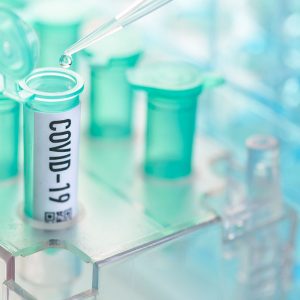Influence of the intestinal microbiome on COVID-19 infection and effectiveness of immunotherapy in oncologic patients and controls–BICOIN, 2020-21. CSIC Global Health Platform. Principal Investigator: Prof. Yolanda Sanz.
We investigate the role of the gut microbiome in the rate and severity of the COVID-19 infection and the immunological response to the virus in oncologic patients under different therapies and controls. Cancer patients are more vulnerable to SARS-Cov-2 viral infection and have a worse prognosis. Programmed cell death protein 1 (PD-1) and its ligand (PD-L1) are used by tumors and viral processes to evade the host immune response, as this pathway inhibits immune responses and promotes tolerance through the modulation of T-cell activity. Blocking this pathway with immune checkpoint inhibitors (ICIs) is an effective treatment for a wide range of tumors. It has been reported that the effectiveness of immune therapies for oncologic patients depends on the microbiome features of the subject. COVID-19 patients also show alterations in their gut microbiome, but its role in infection is unknown. Our project will test the hypothesis that an individual’s gut microbiome influences the severity of SARS-CoV-2 infection in oncologic patients and the response to the virus as a function of the oncologic therapy. The project BICOIN is being carried out in collaboration with the Arnau de Vilanova hospital in Valencia.
Objectives
- Determine the relationship between the gut microbiome and rate and severity of the COVID-19 infection and the “cytokine storm” in patients with cancer and controls
- Identify the immunological mechanisms by which the microbiome can influence the course of the SARS-CoV-2 infection and the response to oncologic therapies, and the production of protective antibodies against the virus
Strategy
- Biobanking samples and creation of a database from different patients
- Microbiome analysis of stool samples through next-generation sequencing technologies and bioinformatics
- Immune phenotyping in peripheral blood and serum by cytokine arrays and flow cytometry
Impact
- Inform clinical decisions based on understanding the relationship between COVID-19 and different cancer treatments
- Microbiome signatures that help to explain and predict the variability in infection rates and severity in specific risk groups such as oncologic patients
Partners and funding organisation





